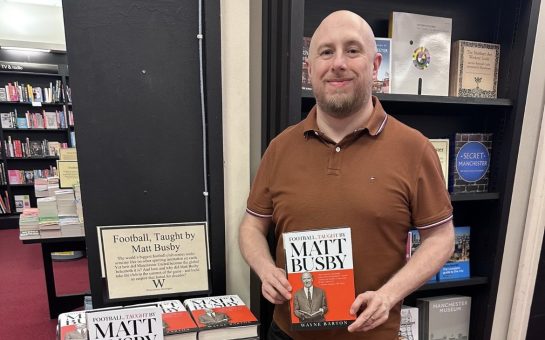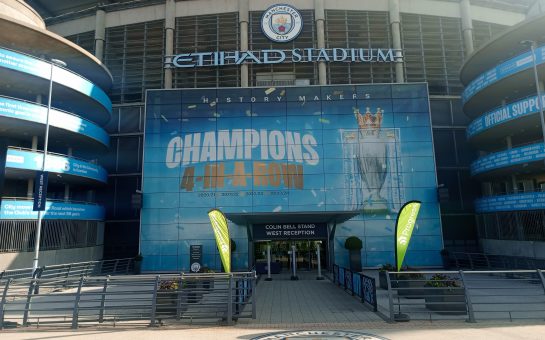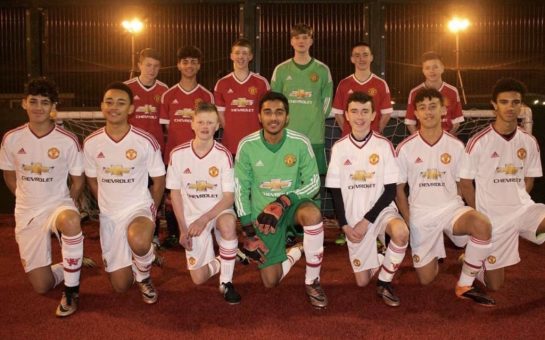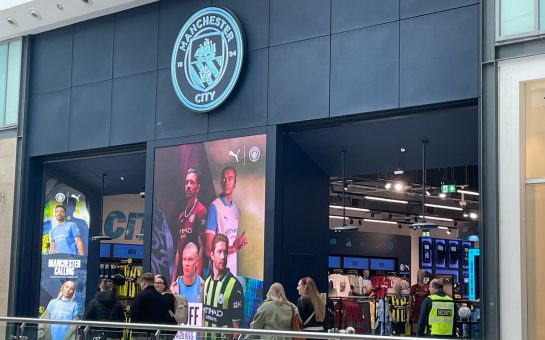It didn’t really matter. It didn’t matter if you followed updates on your phone or if you watched in ultra HD. It didn’t matter if you chose the arbitrary crowd effects or the minimalist stadium noise.
It didn’t matter if you were sat there in full kit and shin pads at 6pm on Thursday evening to watch the dullest match in football history, or you waited it out to catch the Merseyside Derby with a Sunday Roast on your lap.
It didn’t matter that there were no 5-4 thrillers or touchline scraps.
It just didn’t matter. It was just so bloody good to have football back.
But it was never going to be normal, whatever that means these days. The first weekend of the return of the Premier League was always going to be a re-education for us all.
Here’s what we learned:
Time is a healer, but it can’t cure the broken (Arsenal).
Off the pitch, everything has changed. On it—not so much. Much like the end to a traditional season, the last three months gave clubs time to take stock. Time for managers established at their clubs to reflect and strategise for the run-in, and a chance for those who had been appointed to the helm part way through the season to underscore their philosophy.
For the most part, that didn’t happen. We picked up right where we left off. Spurs very much a team managed by Jose Mourinho. Bournemouth and Villa performing like teams destined for The Championship. Norwich, beleaguered and hopeless.
And Arsenal. Oh Arsenal. Arsenal, who if anything, have spent the last few months working on new ways to become even more Arsenal. An unsavoury cocktail of liabilities, exemplified by the train wreck that is David Luiz. A player as effective at defending as Priti Patel is of compassion.
At 33 (yes, 33), it’s astounding he’s still seen as worthy of a role at one of the Premier League’s big six. Time alone won’t cure Arsenal, nor will philosophy. Only transfer windows. Several of them.
Water breaks fail to quench our thirst
At risk of attack from angry sports scientists, the water breaks are a pointless addition which only acts to puncture any momentum that had been built up in the opening twenty-two and half minutes.
They were introduced to help players recover as they return from a three-month break from action, but also to help them keep hydrated during matches over the Summer months. Which is sensible in hot conditions, as we saw in the World Cup hosted in Brazil in 2014.
At the Tottenham Hotspurs Stadium on Friday night, it was a damp 15 degrees.
Games have so far been played at the pace of preseason friendlies and the time-outs only serve to water down the intensity and dampen our enjoyment.
Technology and common-sense need to work together
It would be nice if technology just worked and common sense was redundant. But as we saw in the opening game at Villa Park, even the typically dependable Hawkeye isn’t perfect. We can be confident that the incident, which saw Villa goalkeeper Orjan Nyland fumble the ball over the line only for it to be missed by goal line technology, was an anomaly.
As a statement from Hawkeye after the match referred, nothing like this has happened in over 9,000 matches that it has been in operation. Perhaps this one-off glitch can be forgiven, if you’re not Sheffield United fan of course. But why, oh why, did VAR not intervene?
It only took a pair of eyes to see the ball had crossed line. The answer, most probably, is protocol—VAR has its job, and Hawkeye has its, and the two don’t get involved in each other’s business like a failed marriage.
It’s madness that the virtual assistant could not have told referee Michael Oliver that the ball had crossed the line beyond reasonable doubt. It is both a technical and human blip, and one that Blades fans may come to rue.
Footballers need fans.
“The players will never get used to it”, Wolves Boss Nuno Espirito Santo told Sky Sports after their 2-0 win at West Ham. He was of course, talking about the empty stadiums. “Let’s hope and pray something comes along like a vaccine so we can play in front of fans again”.
Players, understandably, are lacking the va va voom they had before the season was halted. Rather than pressing high, a tactic all sides not managed by Jose Mourinho have become known, teams have been happy to retreat into their shape.
If fans had been present at the Vitality Stadium as the home side went behind to Crystal Place, they may have injected some vigour into their lifeless shell of a team. Had fans been in the terraces at Villa Park as their team took part in attack versus defence drills for 90 minutes against Chelsea, they would have bullied their team to push out.
Even the champions-elect lacked their usual ferocity at Goodison Park.
Hopefully, as players become more accustomed to playing in front of empty stands, we’ll start the see the intensity of matches we have become so familiar.
It’s imperfect, but it’s still as captivating
It is a novel experience watching football on TV playing in front of empty seats. The aura of the occasion is gone, along with the allure that these multi-millionaire magicians usually have.
But without their names chanted by adoring fans and the spine-tingling roar from the terraces in those big moments, it reminds you that these are just 22 blokes kicking a ball around a field.
Just like we used to down the park on a Sunday as angry Dads watch on. And there is a real charm in that.



